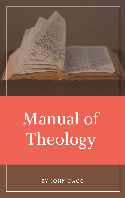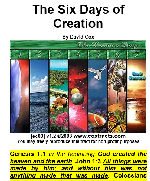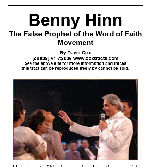Ads
Contents
- 1 Introduction to Unitarianism-Universalism
- 2 What is wrong with Unitarianism?
- 3 What groups are most closely aligned to Unitarians?
Introduction to Unitarianism-Universalism
Unitarianism (also called monarchianism)is a religious position that denies the historical concept of the Trinity. Historically Unitarians began as a denial of the doctrine of the “TRInity” and therefore believing in a UNIty (thus “Unitarians”). They believe that God exists in a single being AND a single person. In order to come to this position, they have to deny full deity to Jesus Christ. Thayer’s lexicon for example (Thayer is Unitarian) has under the entry for Christ, “mistakenly thought to be deity“. Because of their erroneous beliefs on salvation and the person of Christ, they must be understood to be unsaved and heretical. Their religion is not defined on the basis of doctrines (positive declarations of faith) taken from Scripture, but rather in that of denials, denouncing specific statements of faith with which they disagree. Their main target as far as denying is mainstream Christianity.
In general, the Unitarians are a religious group reacting against the traditional concepts of sin and eternal punishment. They are essentially a religion divorced from theological beliefs, doctrine, and anything that would absolutely come from God with divine authority. “All roads lead to God.” No particular “god” is the right one, but all may be the one and only God, and even there may be multiple gods.
The two groups Unitarian Church and the Universalist Church united into one group in 1961. The Unitarian Universalists “General Convention” declared (1899) Unitarian’s theological foundation to be:
- Universal Fatherhood of God.
- The spiritual authority and leadership of His Son Jesus Christ.
- The trustworthiness of the Bible as containing a revelation from God.
- The certainty of just retribution for sin.
- The final harmony of all souls with God.
Additional beliefs are:
- Salvation is by grace through faith and not by works in any way
- Jesus became the Son of God at His baptism
- The Holy Spirit is not a person, does not have a will, etc.
- There now is and will be rewards and punishments according to one’s actions but this does not consist of the traditional doctrine of hell.
- Human reason and experience should be the final authority in determining spiritual truth
taken from Carm.org by Matthew Slick “What is Unitarianism?”
The “Fifty Affirmations of Free Religion” of the Unitarian Free Religious Association (1867) stated in point 34 their desire that “the completion of the religious protest against authority must be the extinction of faith in the Christian Confession [i.e., here, the belief that Jesus was the Messiah].” (David Parke, The Epic of Unitarianism Original Writings from the History of Liberal Religion (Boston, MA: Beacon Press, 1969), p. 123.)
What is wrong with Unitarianism?
Errors on the Doctrine of God
Trinity
Because of their refusal to understand the doctrine of the Trinity, one single God existing in three totally separate persons, they chose to “acknowledge” total deity only in the person of God the Father. They therewith attack the personhood of the Holy Spirit, and deny complete deity to Jesus Christ.
“For there are three that bear record in heaven, the Father, the Word, and the Holy Ghost: and these three are one.” 1st John 5:7
The basic error of Unitarians in regard to the Trinity is their wholesale denial of any Godhead relationship between Father, Son, and Holy Spirit. If God is great and glorious, not sharing his glory and absolute power with anyone, then these kinds of passages equating the three could not exist in Scripture. See John 10:30, Jesus and the Father are one. How can that be true if Jesus is inferior in any way to the Father.
God
Although they accept that God exists, they qualify Him as an impersonal, all-pervading energy (“divine force” or “creative force“) rather than a person. This works well with theistic evolution, i.e. God works through the evolutionary process, but the Unitarians basically remove God as an Agent and Person, and replace him with an impersonal force (like evolution). The consider God as a “First Cause” (impersonal force working) rather than a being that is so great that He in Himself has personality, character, and intense emotions. This is necessary in their understanding in order to degrade the divine punishment on sin, and thereby remove the logical need for an eternal, horrible place of punishment for sinners.
Jesus Christ
In “The Unitarian Way” by Phillip Hewett, we find this statement under the heading “Wider Horizons” on page 89, “If the term Christ is to be interpreted in such a way as to give Jesus a uniquely superhuman status, then discussion of this allegation ends before it begins.” (taken from culthelp.info)
They attack the person of Jesus Christ to degrade him from fully God to something of a myth. Although they accept that he existed (as a teacher that God descended upon to fill in some spiritual way), they consider that most all of the Bible’s comments about him are myths and untrue. Therefore they deny his miracles (seen by them as natural causes) and consider Jesus’ virgin birth and resurrection as untrue, just fictional stories invented and propagated by Jesus’ followers for their own unjust purposes. In essence, Jesus was just a prophet or teacher like so many others in the Bible, and he had the fortune to be chosen by God to be the Savior. They say that this happened in Jesus’ baptism, and before that, he was mortal, finite, and like any other man. But Jesus identified himself as being eternal in John 8:58, so according to his own teaching and understanding, Jesus had always existed. They have to consider Jesus as having sinned, and as neither perfect nor to be worshipped. His only noble asset is to be a very good “normal” sinning human being.
To understand how the Unitarians resort to logic instead of Scripture, consider their stance on the person of Jesus Christ. While Scripture clearly teaches the full deity and humanity of man, being God in order to make a “deal” (atonement) between God and man, and being human to identify fully with God, the Unitarians say that makes Jesus irrelevant because if that were so, then man could not relate to him. Instead they say that Jesus is NOT an atoning Savior. They break the concepts of atoning and Savior, and remove them from Jesus. If Jesus’ death on the cross didn’t save anybody, then what good did it do? They answer “nothing.” The entire Bible focuses on the moment of man’s salvation on the cross of Calvary. Through their illogical “logic”, they deny it all. They say the Bible presents Jesus character ONLY, and his good example helps us to be good. They place an illogical contradiction on Christ’s life and death. If his life is to mean anything (as far as changing us) then his death must not include any kind of atonement.
While the Unitarians will accept with the lips “Jesus Christ”, they destroy what that means. They will work forcibly and untiringly to demote Jesus from full Godhood to a “great spiritual teacher”, but even once that is done, they still reject most all the teachings of Christ about himself. If he was a great spiritual teacher, why do Unitarians still reject his teachings?
John 14:6, 13; 15:16; 16:23-24; Rom 5:2; Eph 2:18 all present that salvation is only through Jesus Christ, and that would exclude good works. See also Acts 4:12; 26:28; 1Pe 4:16.
For more on the person of Christ, See http://www.jashow.org/Articles/_PDFArchives/apologetics/AP2W0405.pdf
The Holy Spirit
Because they deny personhood to the Holy Spirit, the Holy Spirit is reduced to a very minor and unmentioned position in Christianity.
Errors on the Doctrine of Salvation
The Unitarian position is one that rejects “doctrine” (or doctrinal declarations) as the essentials of salvation, and supplants it with love, peace, and kindness (good works). Notwithstanding their statement cited at the beginning of this post (above) against works in salvation, they system is a redemption based on human merit. The “atonement” must be a person thing that the person does by changing his life, and this is without a view “belief” in Christ’s work on the cross. Again we see a tacit acknowledgement to “believe in Christianity like YOU believe”, but then after being accepted by the unwary, they change drastically the beliefs of Christianity to be the opposite. They speak despicably of the “slaughter house religion” of the Bible, saying that this kind of “bloody religion” is unworthy of God. This places them directly against the cross as the only atoning work God will accept.
They believe in the “universal Fatherhood of God” which means that they understand God the Father as having a personal relationship with his children (which we would understand as coming only through scriptural salvation) as extending to all mankind, therefore nobody will ever go to any “mythical” place like hell. That makes all men brothers, and their concern is good works, love, justice to all men.
Errors on the Doctrine of Scripture
They degrade the authority of Scripture placing human reason on a level equal and greater than Scripture. This acceptance then denial of Scripture as authority is because although they want to “appeal” to normal Christians to draw (convert or evangelize them) into Unitarianism, they don’t want to accept a view where doctrine, practice, and creeds are defined by Scripture alone. They consider that the Bible “contains” “a” revelation from God, therefore making what they accept from the Bible a matter of “pick and choose”, subject to their own minds and logic. Typically what “fits” in their thinking is accepted, and what does not is rejected, and they make up their own authorities to again “fit in their scheme of things”. They therefore exalt human reason and logic (Humanism).
It is highly illogical to deny the divine authority of Scripture on the basis that the Bible is a work of humans, reasoning as they would during the time of Christ to make fables, myths, and untrue stories and pretensions which men today must reject on the basis of Unitarians (men) who make up their own fables, myths, and untrue and illogic stories and pretensions. Why are these Unitarians better or more acceptable in their human reasonings that biblical characters? That fallacy is never answered for them, making their view absolutely right, and anybody that disagrees with them absolutely wrong.
For example Mr. J. Mendelssohn, a well-known Unitarian minister, said (1960) the Bible “is replete with inaccuracies, inconsistencies, and errors.” The Unitarian MUST deny the absolute authority of the Bible or else admit that he does not obey it.
Another example is that the Unitarian church was the first to ordain women (in the 19th century).
“God forbid: yea, let God be true, but every man a liar…” -Romans 3:4
“For they being ignorant of God’s righteousness, and going about to establish their own righteousness, have not submitted themselves unto the righteousness of God.” -Romans 10:3
“It is better to trust in the LORD than to put confidence in man.” Psalms 118:8
Errors on the Doctrine of Sin
Since they are in a position and desire to “unify” all religious groups, they minimize sin. They rarely want to recognize the presence of sin, and they degrade the importance of sin. They consider good works will eradicate sin in the evolutionary progress of mankind. With time, man will completely stop sinning, thus saving himself.
Errors on the Doctrine of the Church
Unitarianism focuses on good works and deemphasizes the authority of Scripture, so therefore, their church services are more directed at stressing the need for good works as a part of life, something that God will reward us for, and essentially that which “saves” us. Again, they accept the concept of “being saved” but redefine it so as to destroy it. Sin isn’t bad in God’s eyes to them. There is no real, horrible, eternal punishment, everybody will one day end up in heaven, so therefore why does anybody really need to be saved? This is the “illogic” of their intensely reasoned arguments. They only accept superficially normal Christian terms and doctrine so as to later destroy them. This would seem to be a major thrust in their church services, to destroy essential Christian concepts and doctrines.
Errors on Eschatology
Since they conclude that God the Father is a universal Father of all mankind, therefore all humanity will go to live forever with God, and the only thing waiting after death is salvation. They deny the existence of hell. They belief that God cannot allow any being to suffer because of God’s qualities of love and mercy.
In their excesses and ridiculous conclusions they also go so far as to deny the existence of heaven. In the end, they rend null and void most of the key Bible doctrines, and even in teaching about God, they basically reduce him to an impersonal “force” they humanity does not have to worry about.
These people will present themselves as great biblical scholars who are experts in Greek and Hebrew, and they will use arguments from their Greek and Hebrew (and linguistic) scholars to argue that the word “eternal” only means a limited amount of time. They often argue towards annihilationism, that there is no afterlife after death.
Other Observations about Unitarians
- Unitarians fully allow unrepentant gays into their churches, and to become ordained ministers under their permission.
“Thou shalt not lie with mankind, as with womankind: it is abomination.” Leviticus 18:22
What groups are most closely aligned to Unitarians?
The Jehovah’s Witnesses, Christadelphianism, the Way Internationals, as well as many others are doctrinally aligned with the Unitarians.
The Jesus Seminar is also a movement clearly in this same mindset.

Dagg Manual of Theology is a theology work in 2 volumes by J.L. Dagg a Reformed Southern Baptist. It is an extensive, very ample presentation of doctrines.
This is an extensive Bible Systematic Theology (Bible Doctrines book) from a conservative point of view.
Read/Download: now with pdf download link. 50,000 views on this page with download link






 Helpful Windows User Tip for "Searching Everything" on your PC.
Helpful Windows User Tip for "Searching Everything" on your PC.